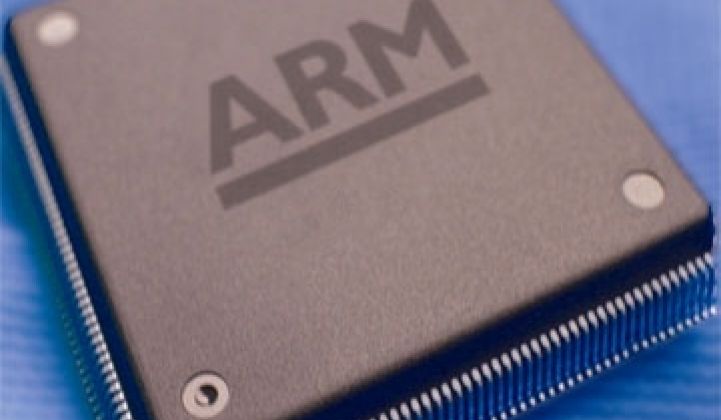Is less more?
Smooth-Stone, which came out of stealth mode for $48 million dollars from Battery Ventures and the investment fund of Abu Dhabi, says it can chip away at Intel's titanic dominance in server chips with a low-powered processor.
The chip is based around a design from ARM, the British chip design company. ARM chips power the vast majority of cell phones in the world and enjoy an increasing dominance in smart meters. ARM chips aren't as powerful as Intel's top server processors. Server chips, however, are often too good for their own use. They spend a large chunk of their time in idle, even with virtualization software that effectively allows a single server to perform multiple tasks at once.
The idea is that a lower-powered chip would save money by curbing power without crimping performance. Another plus: the chip is based around a familiar ARM design. Software and support for this architecture is bountiful. Data centers adopting this chip would not find themselves working with an unknown. Intel server chips can also be costly.
Uh oh. Ugly reality time. Many have tried to compete against Intel in computer and server processors: Cyrix, National Semiconductor, Sun Microsystems, AMD, IBM, Rise Semiconductor, Transmeta, Montalvo Systems. The successful ones like IBM and Sun were able to put their chips in their own servers, but Intel still owns 90-plus percent of the market for server chips. AMD has made gains, but has lost more money since its founding back in the late '60s than it has made. (I counted it up once and the numbers have only gotten worse.) The rest of these companies saw their ambitions shrivel up. Most are now gone.
And some -- Montalvo, Cyrix and Transmeta -- played the energy card at a time when Intel was particularly weak. All three burned through a lot more money than $48 million, too. Intel has also come out with a family of low-powered Atom chips that can go into servers.
Most high-end data center customers are not willing to gamble on performance. They would rather pay for more power for servers and scrimp someplace else. Some companies have begun to replace traditional hard-drive storage systems with DRAM and flash memory. It's more expensive but it boosts performance. Good luck convincing Yahoo that a few microseconds of delay on a search won't hurt you.
Smooth-Stone's goal is not impossible. Technically, they have a good argument and some sterling allies. But this is a quest that has left many dead. A more promising approach for a company trying to save power is to avoid a direct confrontation with Intel. Sandforce, for instance, has come up with a controller (a less elaborate microprocessor) for making flash drives more economical. It's an Intel-like market that Intel isn't that interested in. You will see other chip companies soon in this market.
Cell phones are perhaps also a more promising market.



